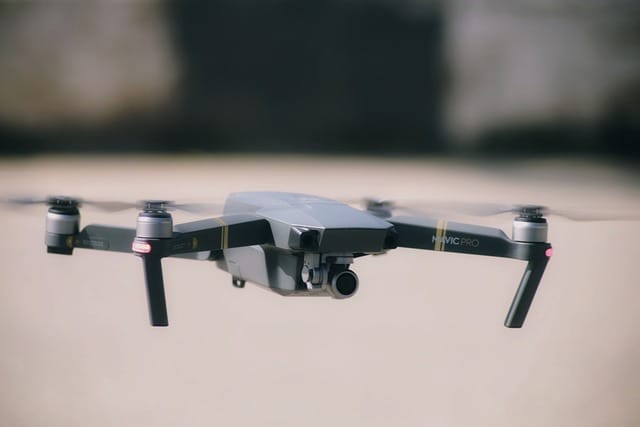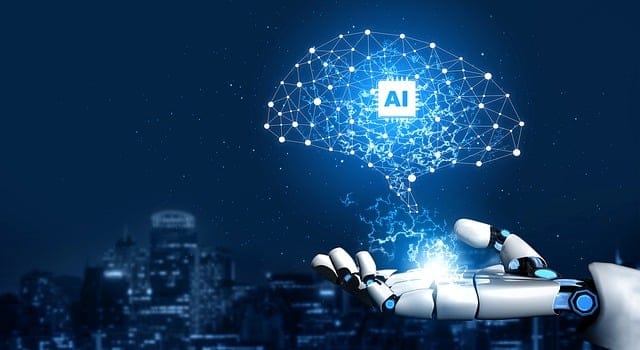
The benefits of AI-powered automation are as clear as daylight. For starters, efficiency skyrockets. Routine tasks like scheduling, data entry, or even customer service inquiries can be handled swiftly by AI systems, freeing up human brains for more strategic thinking. Think of it as giving your employees superpowers; they can focus on creativity and innovation instead of getting lost in the data weeds. Plus, businesses can save on labor costs, which means more resources to invest in growth and development.

But hold on — while we’re riding this wave of automation bliss, it’s essential to peek at the other side of the coin. Potential risks lurk just around the corner. What happens to jobs as machines take over not just menial tasks, but other roles too? We could encounter a job market shake-up that leaves many scrambling. And let’s not forget about data security. AI systems thrive on information, and with that comes the risk of breaches and misuse. If a hacker finds a way into an AI system, the fallout could be monumental.
Harnessing the Future: How AI-Powered Automation is Revolutionizing Industries
Think about it: in healthcare, AI helps doctors diagnose diseases more accurately by analyzing data at a speed no human could match. It’s like having a super-smart assistant who never gets tired. Meanwhile, in manufacturing, robots equipped with AI are not just flipping switches; they’re predicting malfunctions before they occur, reducing downtime and saving companies a boatload of cash. Isn’t that mind-blowing?
But it doesn’t stop there. Let’s chat about customer service. Ever interacted with a virtual assistant? These AI tools don’t just answer questions; they learn from conversations to improve over time. It’s like having a friend who always knows what you need, even before you ask for it. Businesses are hopping on this bandwagon because it’s not just about cutting costs anymore; it’s about providing an exceptional experience.
And let’s not forget the impact on agriculture. Picture drones flying over fields, using AI to analyze soil health and crop conditions. It’s like having a high-tech bird’s eye view, ensuring farmers know exactly when to plant and harvest, boosting yields like never before.

As AI-powered automation continues to grow, the opportunities are limitless. It’s reshaping how we live, work, and interact with the world around us. So, are you ready to embrace this technological marvel? The future is knocking, and it’s time to answer!
The Double-Edged Sword: Navigating the Benefits and Risks of AI Automation
So, what’s the big deal with AI automation? On one side, it boosts productivity and cuts costs faster than a knife through butter. Picture a factory where robots handle the heavy lifting, letting human workers focus on creativity and strategy. Sounds great, right? But hang on! What about job security? As companies race to adopt these automated systems, there’s a real fear that people could be left out in the cold, wondering if their skills will still be needed in a world dominated by algorithms.
Let’s not forget about the quality of decision-making. AI can analyze data faster than we can say “machine learning,” allowing businesses to pivot strategies almost instantly. But, here’s the kicker: those decisions are only as good as the data fed into them. Biased data can lead to flawed outcomes, almost like trying to drive with a fogged-up windshield. You might just get lost!
Then there’s the ethical dilemma—who’s responsible when AI makes a mistake? Imagine a self-driving car causing an accident; where does the blame land? The tech, the manufacturer, or the coder? It’s a tangled web, isn’t it?
From Efficiency to Ethics: The Complex Landscape of AI-Driven Automation
Think about it: automating jobs can boost productivity faster than a speeding bullet, yet what happens to those jobs? It’s like a double-edged sword; while businesses trim costs and maximize output, human workers might find themselves on the sidelines. And who’s to say what’s a fair trade-off? It’s a real balancing act between reaping the rewards of innovation and maintaining the human touch that keeps us all connected.
Moreover, the ethical implications don’t just stop at job displacement. Imagine algorithms making decisions about your health care or loan approvals. It’s kind of like handing the keys to your life over to a machine—one that may not fully understand the nuances of human experience. Are these AI systems trained fairly? Do they reflect our biases? Suddenly, what seemed like a clear path to efficiency turns into a complex web of ethical considerations.
So, as we explore this landscape of AI-driven automation, we need to keep our eyes wide open. How do we harness this power for good, ensuring that while machines boost our productivity, we don’t lose sight of what makes us human? This isn’t just a tech evolution; it’s a moral journey that we all need to walk together.
The Rise of Machines: Are We Ready for the Benefits and Potential Pitfalls of AI Automation?
Let’s face it—AI automation is like that shiny new toy you can’t resist. It can streamline operations, boost productivity, and free up human brains to engage in creative, high-level thinking. Imagine a world where your boring, repetitive tasks are handled by a smart robot, leaving you free to focus on the exciting stuff. That’s not just a dream; it’s happening now! Businesses leverage these automated systems for everything from data analysis to customer service, allowing them to stay competitive in a fast-paced market.
But wait! It’s not all sunshine and rainbows. With great power comes great responsibility, right? As we sprint into this AI-driven landscape, we have to consider the potential pitfalls lurking around the corner. What about job displacement? Millions of hardworking folks could find their roles diminished or even eliminated. Then there’s the ethical dimension: Who’s responsible when an AI makes a mistake? When machines make critical decisions, are they accountable?
Navigating the landscape of AI automation is like driving a car—exciting, but with plenty of twists and turns. While the benefits could elevate our lives in unimaginable ways, we must tread carefully. Understanding and addressing these challenges is key to ensuring that we reap the rewards without falling into hidden traps. As we embrace this shift, let’s make sure we’re steering in the right direction!
AI Automation: Enhancing Productivity or Threatening Employment? The Ongoing Debate
Imagine you’re at a coffee shop, and instead of a barista, there’s a smart robot whipping up your favorite latte. Cool, right? You get your drink faster, while the robot works tirelessly without breaks. But here’s the kicker: what happens to the barista? This scenario encapsulates the heart of the debate surrounding AI automation.
On one hand, proponents of AI argue that automation boosts efficiency. Tasks that once took hours can now be completed in mere minutes, freeing up human brains for more creative pursuits. Think of it as having a trusty sidekick – one that handles the mundane so you can focus on the innovative. Many businesses are reaping the rewards, slashing costs, and ramping up productivity, which ultimately boosts the economy.
Yet, there’s that nagging worry about job displacement. Remember when people feared that ATMs would eliminate bank tellers? It’s happening again, but on a larger scale. Jobs in manufacturing, retail, and even professional fields are being reshaped or outright replaced by smart machines.
So, what’s the balance here? Is AI automation a revolution that will expand our horizons or a menace that’s poised to wipe out entire industries? While some see it as a tool for growth, others view it as a looming threat. The truth lies somewhere in between, and it’s a conversation we can’t afford to ignore.
Frequently Asked Questions
What Ethical Concerns Are Associated with AI-Powered Automation?
AI-powered automation raises ethical concerns including job displacement, privacy issues, bias in decision-making, and accountability. It is essential to address the potential impact on employment, ensure transparent data usage, mitigate bias in algorithms, and establish responsibility for automated actions.
What Risks Should Companies Consider with AI Automation?
Companies should evaluate the potential risks of AI automation, including data privacy concerns, job displacement, algorithmic bias, reliance on technology, and security vulnerabilities. Understanding these factors is crucial for implementing AI responsibly and effectively.
How Does AI Automation Improve Business Efficiency?
AI automation enhances business efficiency by streamlining processes, reducing human error, and saving time. It accelerates workflows, enables data-driven decision making, and optimizes resource allocation, leading to increased productivity and cost savings.
What Are the Key Benefits of AI-Powered Automation?
AI-powered automation enhances efficiency by streamlining repetitive tasks, reducing human error, and increasing productivity. It enables faster decision-making through data analysis, optimizes resource management, and allows for 24/7 operation. Additionally, it frees up human workers to focus on more strategic and creative tasks.
Can AI Automation Replace Human Workers?
AI automation can enhance productivity and efficiency in many industries by performing tasks that are repetitive or data-driven. However, it often complements rather than completely replaces human workers, as tasks requiring creativity, leadership, and emotional intelligence still benefit from human involvement. The transition may lead to shifts in job roles and the need for new skills, highlighting the importance of adaptability in the workforce.






